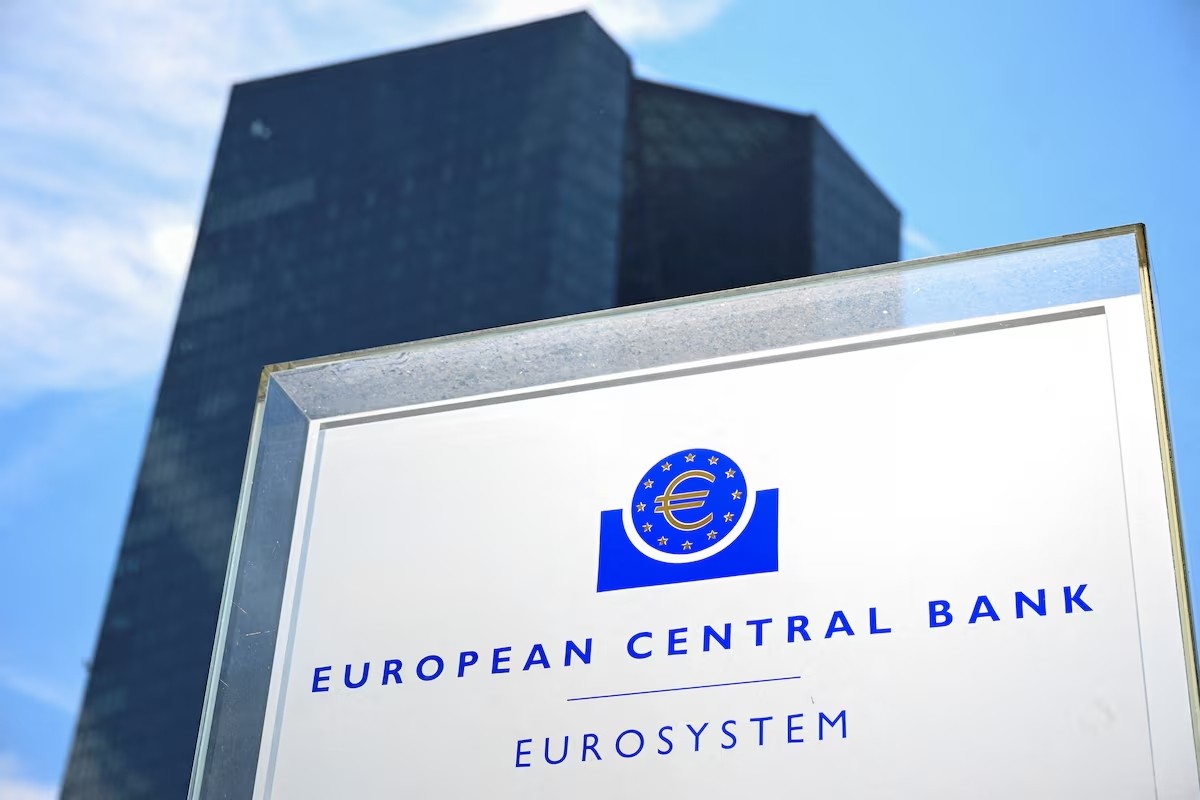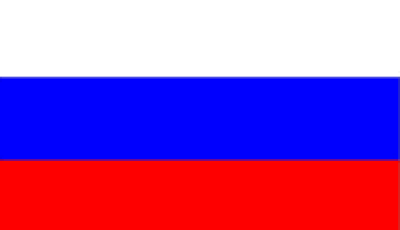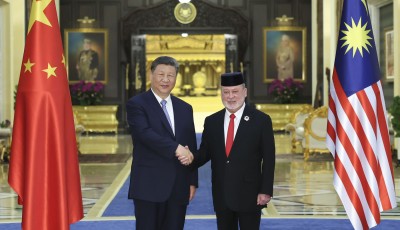ECB Cuts Rates as Trump's Tariffs Stir Eurozone Growth Fears

The European Central Bank (ECB) lowered interest rates once again on Thursday, citing mounting concerns that U.S. President Donald Trump's unpredictable tariff policies could undermine economic growth across the eurozone.
ECB policymakers agreed to reduce the benchmark deposit rate by 0.25 percentage points, marking the institution’s sixth consecutive rate cut. The move brings the rate down to 2.25 percent — the lowest level since early 2023.
While inflation across the eurozone continues to ease toward the ECB’s 2 percent target, the central bank warned that "the outlook for growth has deteriorated due to escalating trade tensions."
After signaling a potential pause in rate adjustments at its March meeting, the ECB now appears to have been compelled into action by renewed uncertainty stemming from President Trump's erratic tariff announcements.
"The latest cut came as little surprise," said ING Bank analyst Carsten Brzeski. He noted that while the ECB had aimed for a "very measured" path to rate normalization, the central bank risked "falling behind the curve" in light of evolving global risks.
Trade Tensions Cloud Outlook
Heading into Thursday’s decision, ECB officials were grappling with a murky trade landscape. The U.S. administration has imposed a baseline 10 percent tariff on imports, with additional 25 percent duties targeting the automotive, steel, and aluminum industries. President Trump further rattled markets earlier this month with sweeping “Liberation Day” tariffs, only to temporarily suspend them for several countries, including EU members, for a 90-day period.
The White House has also launched investigations into semiconductors and pharmaceuticals, raising the prospect of additional sector-specific levies that could further affect eurozone exporters.
Describing the current environment as one of “exceptional uncertainty,” the ECB reaffirmed its commitment to a "data-dependent and meeting-by-meeting" strategy. The central bank warned that heightened volatility could dampen consumer and business confidence, while tighter financial conditions may restrict credit availability.
In this context, analysts at Italian lender UniCredit said the rate cut was a “straightforward” response to relieve pressure on households and firms.
They added that the economic fallout from rising U.S. tariffs would likely “outweigh the positive impact” of Germany’s ambitious spending plans, which include hundreds of billions of euros for defense and infrastructure under Chancellor Friedrich Merz’s new government. However, those measures are not expected to take full effect until 2026.
Inflation Outlook and Policy Signals
U.S. trade measures are also likely to exert downward pressure on eurozone inflation, said Robert Greil, a strategist at private bank Merck Finck. Consumer price growth has already fallen sharply from the double-digit highs of late 2022, standing at 2.2 percent in March.
A stronger euro relative to the U.S. dollar should help make imports cheaper, and U.S. tariffs on Chinese goods could redirect lower-cost products into European markets, further easing inflationary pressures, Greil noted.
Markets are now closely watching ECB President Christine Lagarde for signals on the bank’s next steps. In recent remarks, Lagarde emphasized the ECB's readiness to act decisively if needed, particularly if U.S. trade policy destabilizes global financial conditions.
“The ECB is always ready to use the instruments it has available,” she said during a speech in Warsaw last week.









_3.png)






तपाईको प्रतिक्रिया दिनुहोस